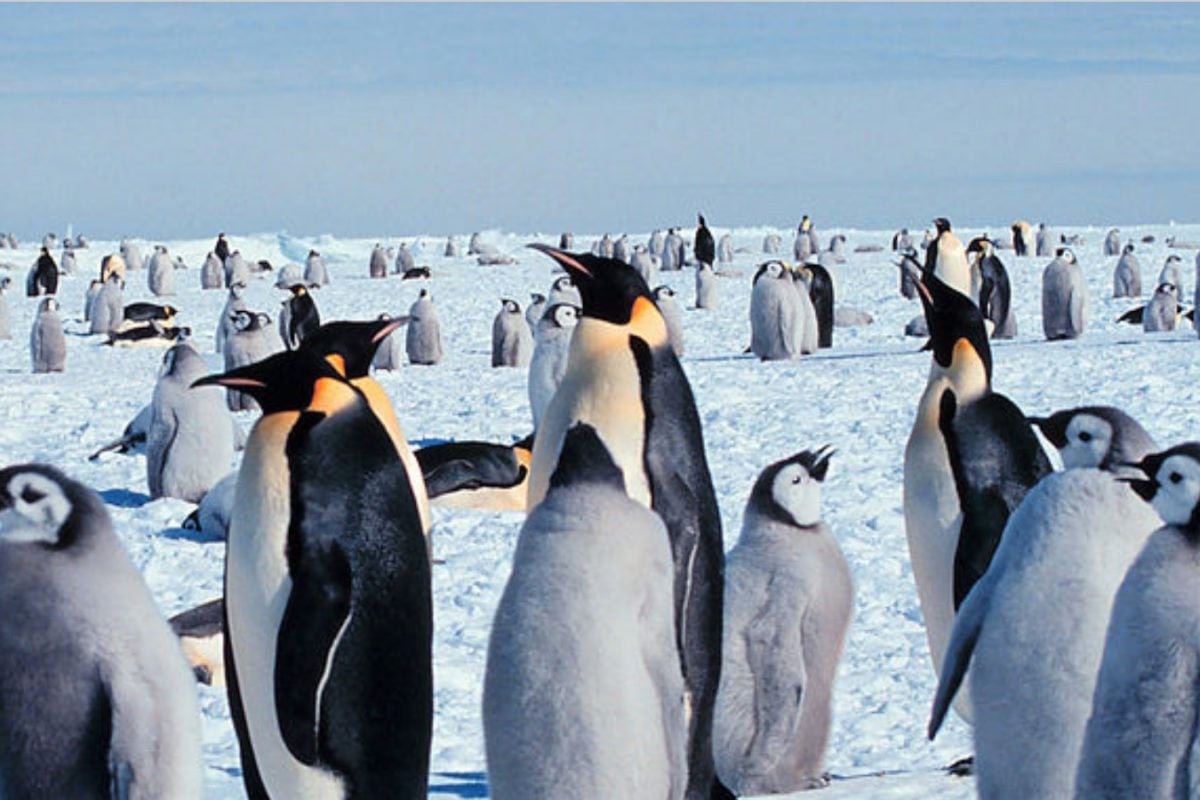The number is impressive: 511 billion barrels of oil discovered underground Antarctica. Peru consumes 250,000 barrels of oil daily, so what is found under the frozen platform of the South Pole is equivalent to the national consumption in 5,600 years. Not only that. The discovery made by Russia It is equivalent to the crude oil reserves of Saudi Arabia and Venezuela combined. Therefore, what is hidden on the frozen continent are more than colossal resources that could change the planet’s destiny, or remain underground preserving what little balance it has left.
TO LOOK: Ecuador decrees a new state of exception: is it winning or losing the war against crime?
The subject is not minor, nor is it new. The polar research vessel Alexander Karpinsky, which operates for the Russian geological agency Rosgeo, reported in 2020 the identification of around 70 billion tons of oil and gas (equivalent to 511 billion barrels) in the subsoil of the Weddell Sea, an Antarctic territory. which is claimed by Argentina, Chile and the United Kingdom.
“The data obtained during the new expedition will substantially clarify our expectations regarding oil and gas prospects in the seas of the Antarctic shelf,” said Sergey Kozlov, chief geologist at PMGE, a subsidiary of Rosgeo, that February 2020.
The issue, however, acquired new relevance and concern from mid-May, when the BRICS group (formed by Brazil, Russia, India, China and South Africa) raised the issue by announcing on its X account that “Russia discovers oil and gas reserve in the British Antarctic territory”, referring to Karpinsky’s investigations.
The detail is that the white continent is not owned by anyone, but has been governed since 1959 by the Antarctic Treaty, an international agreement that prohibits any type of mining or exploration of hydrocarbons and only allows scientific research. Therefore, the resources found are not from Russia or any other country.
However, because it is Moscow, alarms always go off. The British newspaper “The Telegraph” published a report that revealed that in a parliamentary session several legislators expressed their fears to the United Kingdom Government about a possible oil operation by Moscow in Antarctic territory.
Jane Rumble, head of the polar regions department at the British Foreign Office, assured the House of Commons that there is no evidence to indicate a violation of the treaty by Russia, which is a signatory to the treaty and has seven scientific stations in the region.
“The Russians have been doing a lot of research for several years on the continent’s natural resources. In fact, they found a sea under Antarctica,” engineer Fernando Jiménez, director of the Masters in Energy at PUCP and former representative of Peru before the Antarctic Environmental Protection Committee, told El Comercio.
And he adds: “the world’s largest reserves of natural gas are in Russia. “Adding now the possibility of this amount of hydrocarbons on the other side of the planet is making them the master of the tap.”
Antarctica is almost the size of the entirety of South America and, for now, remains the only intangible place on the planet, but it is also suffering the ravages of global warming with the faster melting of its glaciers.
Therefore, the preservation of the continent – which has a very fragile ecosystem – is essential to avoid further altering climate patterns around the world. Although when the Antarctic Treaty was signed environmental care was not on the agenda, since then it has been considered a place dedicated to science, something substantial especially in the context of the Cold War, but also to meet the territorial claims that arose from the beginning. of the 20th century.
Of the twelve countries that signed the agreement in 1959, seven claim part of the territory – Argentina, Australia, Chile, France, New Zealand, Norway and Great Britain – whose requests remained in the freezer while the document, which is considered one of the most developed countries in the world, remains in force under the same terms.

Following British concern, President Joe Biden signed a document that reaffirms the United States’ commitment to protecting the environment and scientific research in Antarctica, while Chilean President Gabriel Boric indicated that he will not accept any violation of the agreement or any commercial exploration on the continent.
Russia, obviously, points out that its studies in Antarctica are of an exclusively scientific nature, but concerns about some plan that the Kremlin has in hand are already on the table, in yet another global geopolitical match that could be played in the not too distant future. , especially when it comes to resources superior to millionaires.
Source: Elcomercio
I am Jack Morton and I work in 24 News Recorder. I mostly cover world news and I have also authored 24 news recorder. I find this work highly interesting and it allows me to keep up with current events happening around the world.

:quality(75)/cloudfront-us-east-1.images.arcpublishing.com/elcomercio/A437UMMJYJE2XMZH4CUVURG3QI.jpg)





